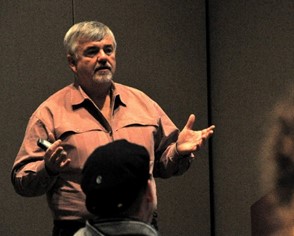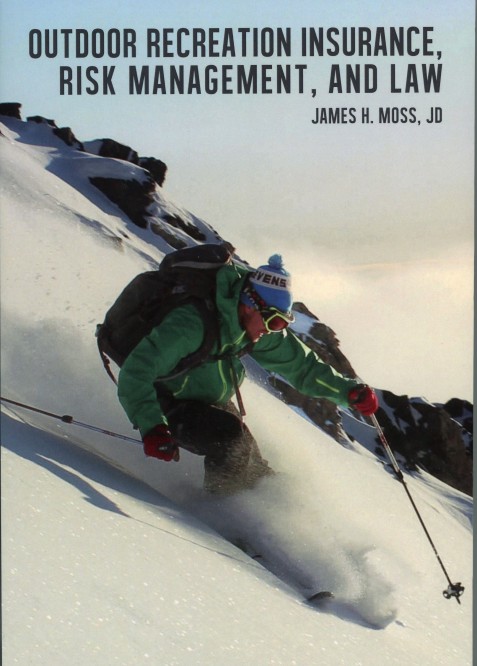New Jersey does not support fee shifting provisions (indemnification clauses) in releases in a sky diving case.
Posted: June 1, 2015 Filed under: New Jersey, Skydiving, Paragliding, Hang gliding | Tags: Fee Shifting Provisions, Freefall, Freefall Adventures, Inc., Indemnification, Prima facie, Release, sky diving, Skydiving Leave a commentThe plaintiff’s claims were dismissed because the plaintiff failed to present enough evidence to support any elements of his claim for his injuries from skydiving.
Dare v. Freefall Adventures, Inc., 349 N.J. Super. 205; 793 A.2d 125; 2002 N.J. Super. LEXIS 155
State: New Jersey, Superior Court of New Jersey, Appellate Division
Plaintiff: Joseph Dare and Patricia Dare
Defendant: Freefall Adventures, Inc., John Ed-Dowes, Warren Acron, and Eric Keith Johnson, Defendants-Respondents.
Plaintiff Claims:
Defendant Defenses:
Holding:
Year: 2002
The plaintiff was injured when he attempted to avoid colliding with another skydiver. The co-participant had left the airplane first and was lower than the plaintiff; therefore, the co-participant had the right of way.
The plaintiff had been jumping from this site with the defendant for two years, which totaled 137 jumps, including every week the six months before the accident.
Prior to jumping the plaintiff signed a release. The release was five pages long and included an indemnity agreement. The plaintiff also signed a release for Cross Keys Airport, Inc.
The plaintiff sued his co-participant skydiver, as well as the jump facility for his injuries.
The plaintiff denied that it was the cause of his injury; however, he had made arrangements to have his wife photograph him during the jump. In order to allow his wife the opportunity to photograph him, he had to steer through buildings towards the concession trailer where his wife was located.
The defendants filed a motion for summary judgment, which was granted because the plaintiff failed to establish a prima facie case of negligence.
Prima facie, Latin for first look, which legally means the plaintiff, could not establish any facts or sufficient facts to support its claims. A plaintiff must show enough to the court to establish the very basics supporting the elements in its claim.
The defendant had argued that based on the release it should be awarded its attorney fees and costs; however, the trial court did not grant this motion.
Analysis: making sense of the law based on these facts.
The court first looked at the standard of care between participants in a sporting event.
…the duty of care applicable to participants in informal recreational sports is to avoid the infliction of injury caused by reckless or intentional conduct.” The Court’s determination was grounded on two policy considerations; the promotion of vigorous participation in athletic activities, and the avoidance of a flood of litigation generated by voluntary participation in games and sports.
The reckless standard is a greater standard than the negligence standard. That means the acts of the co-participant to be liable for the injuries of another participant must be beyond negligent acts.
The applicability of the heightened standard of care for causes of action for personal injuries occurring in recreational sports should not depend on which sport is involved and whether it is commonly perceived as a “contact” or “noncontact” sport. The recklessness or intentional conduct standard of care articulated in Crawn was not meant to be applied in a crabbed fashion. That standard represented the enunciation of a more modern approach to our common law in actions for personal injuries that generally occur during recreational sporting activities.
Another reason for the application of the reckless standard rather than the negligence standard is the concern that the lower standard would create a flood of lawsuits for any sporting injury.
Recklessness under New Jersey law “entails highly unreasonable conduct, involving “an extreme departure from ordinary care, in a situation where a high degree of danger is apparent.”
“The standard is objective and may be proven by showing that a defendant ‘proceeded in disregard of a high and excessive degree of danger either known to him [or her] or apparent to a reasonable person in his [or her] position.'”. “Recklessness, unlike negligence, requires a conscious choice of a course of action, with knowledge or a reason to know that it will create serious danger to others.”
The court also felt that a failure on the part of the plaintiff to provide expert testimony as to what standard of care was for skydiving doomed the plaintiff’s claims.
skydiving requires the training and licensing of participants. According to the record, it involves knowledge and conduct peculiar to the activity, including an understanding of wind direction and velocity, proper diver spacing, control of descent, and avoidance of ground hazards.
The appellate court upheld the trial court’s dismissal of the plaintiff’s claims against the other co-participant skydiver. The court then looked at the plaintiffs’ claims against the defendant sky diving operation. The court found that the recklessness standard did not apply to the facility.
Consequently, the question here was whether, under the ordinary duty owed to business invitees, considering the nature of the risks associated with skydiving and the foreseeability of injury, plaintiff’s risk of injury was materially increased beyond those reasonably anticipated by skydiving participants as a result of the manner by which Freefall operated its facility. Plaintiffs failed to demonstrate such a material increase in risk.
For the plaintiff to make a claim against the defendant facility, he would have to prove that the facility materially increased the risks over that of a normal sky-diving facility. Again, the plaintiff failed to prove that or provide enough evidence to proceed with his claims.
There was absolutely no evidence presented that Freefall failed to supervise the divers on the day of plaintiff’s accident. The record established that the loading of the aircraft, its operation, and the jumps themselves, were uneventful. Nothing suggests that Freefall personnel knew or should have known that plaintiff, or any other diver, was in peril because of the conduct of other participants. Moreover, Freefall had no way of controlling plaintiff’s, Johnson’s, or any other jumper’s maneuvering of their parachute canopies during the descent. Both plaintiff and Johnson were trained and licensed sky-divers. It is undisputed that once airborne, it was their duty alone to proceed with due care.
The plaintiff also claimed the landing zone of the defendant facility was not in accordance with regulatory minimums; however, he never stated what those minimums were or how the defendant’s facility failed to meet those minimums.
The appellate court upheld the dismissal of the plaintiff’s claims.
We conclude that the recklessness standard applied to Johnson and the ordinary negligence standard applied to Freefall, and, based on the evidentiary material submitted, summary judgment was properly granted to all defendants.
The court then looked at the indemnification provisions in the release which the court called “fee shifting provisions.”
The court looked at how other states had handled fee-shifting provisions in sky-diving cases. New Jersey had not looked at the issue in skydiving but had examined the issue in other cases, which had found the provisions were void.
The court reiterated that the plaintiff’s claim had been dismissed based on the plaintiff’s failure to present a prima facie case, not based on the release. The fee-shifting provisions were part of the release. Under New Jersey law, “that sound judicial administration is best advanced if litigants bear their own counsel fees.” Even when fee-shifting provisions are allowed, they will be strictly construed.
Essentially, the fee-shifting clause in Freefall’s release/waiver may be construed as an indemnification agreement, whereby plaintiff has agreed to pay counsel fees incurred by Freefall in defending plaintiffs’ suit, even if the cause of plaintiff’s injuries was Freefall’s own negligence. Such agreements, of course, must also be strictly construed against the indemnitee.
Reviewing construction law and finding no recreational case law where a fee-shifting provision had been upheld the court determined the provisions were void as a violation of public policy.
Against this backdrop, we conclude that the fee-shifting provision in Freefall’s agreement is void as against public policy. It obviously runs counter to our strong policy disfavoring fee shifting of attorneys’ fees.
The deterrent effect of enforcing such a fee-shifting agreement offends our strong policy favoring an injured party’s right to seek compensation when it is alleged that the injury was caused by the tortious conduct of another.
The court also justified its decision by saying that because skydiving was regulated boy by the FAA and the New Jersey Department of Transportation it would be wrong to allow recovery of attorney fees by the defendant when the plaintiff argued the regulations had been violated, Even though the plaintiff’s arguments had no proof.
The defendant also attempted to argue the plaintiff’s complaint was frivolous which under a New Jersey statute would have allowed the defendant to recover their attorney fees defending a frivolous claim. However, the court found there were enough bases in the plaintiff’s complaint that it did not meet the frivolous claim threshold.
So Now What?
As stated in several other cases, indemnification clauses, even when well written, as you might assume from a five-page release, rarely result in recovery of attorney fees.
This also shows that the length of the release is not a deterrent, whether the release is effective in some courts. Some people balk at a release over one page. However, when stopping a multi-million dollar claim a few pieces of paper are not a big issue.
Have your release written so that it protects you and all possible co-defendants and maybe includes a well-written indemnification clause.
What do you think? Leave a comment.
| Jim Moss is an attorney specializing in the legal issues of the outdoor recreation community. He represents guides, guide services, and outfitters both as businesses and individuals and the products they use for their business. He has defended Mt. Everest guide services, summer camps, climbing rope manufacturers; avalanche beacon manufacturers, and many more manufacturers and outdoor industries. Contact Jim at Jim@Rec-Law.us |
Jim is the author or co-author of eight books about legal issues in the outdoor recreation world; the latest is Outdoor Recreation Insurance, Risk Management,
To see Jim’s complete bio go here and to see his CV you can find it here. To find out the purpose of this website go here.
If you are interested in having me write your release, download the form and return it to me.
Connect
If you like this let your friends know or post it on FB, Twitter, or LinkedIn
Facebook Page: Outdoor Recreation & Adventure Travel Law
LinkedIn https://www.linkedin.com/in/recreationlaw/
Threads https://www.threads.net/@recreation_law
X https://twitter.com/RecreationLaw
Email: Jim@Rec-Law.US
By Recreation Law Rec-law@recreation-law.com James H. Moss
@2015-2023 Summit Magic Publishing, LLC
G-YQ06K3L262
#AdventureTourism, #AdventureTravelLaw, #AdventureTravelLawyer, #AttorneyatLaw, #Backpacking, #BicyclingLaw, #Camps, #ChallengeCourse, #ChallengeCourseLaw, #ChallengeCourseLawyer, #CyclingLaw, #FitnessLaw, #FitnessLawyer, #Hiking, #HumanPowered, #HumanPoweredRecreation, #IceClimbing, #JamesHMoss, #JimMoss, #Law, #Mountaineering, #Negligence, #OutdoorLaw, #OutdoorRecreationLaw, #OutsideLaw, #OutsideLawyer, #RecLaw, #Rec-Law, #RecLawBlog, #Rec-LawBlog, #RecLawyer, #RecreationalLawyer, #RecreationLaw, #RecreationLawBlog, #RecreationLawcom, #Recreation-Lawcom, #Recreation-Law.com, #RiskManagement, #RockClimbing, #RockClimbingLawyer, #RopesCourse, #RopesCourseLawyer, #SkiAreas, #Skiing, #SkiLaw, #Snowboarding, #SummerCamp, #Tourism, #TravelLaw, #YouthCamps, #ZipLineLawyer, Freefall Adventures, Inc., Skydiving, Sky Diving, Freefall, Fee Shifting Provisions, Indemnification, Prima facie, Release,




